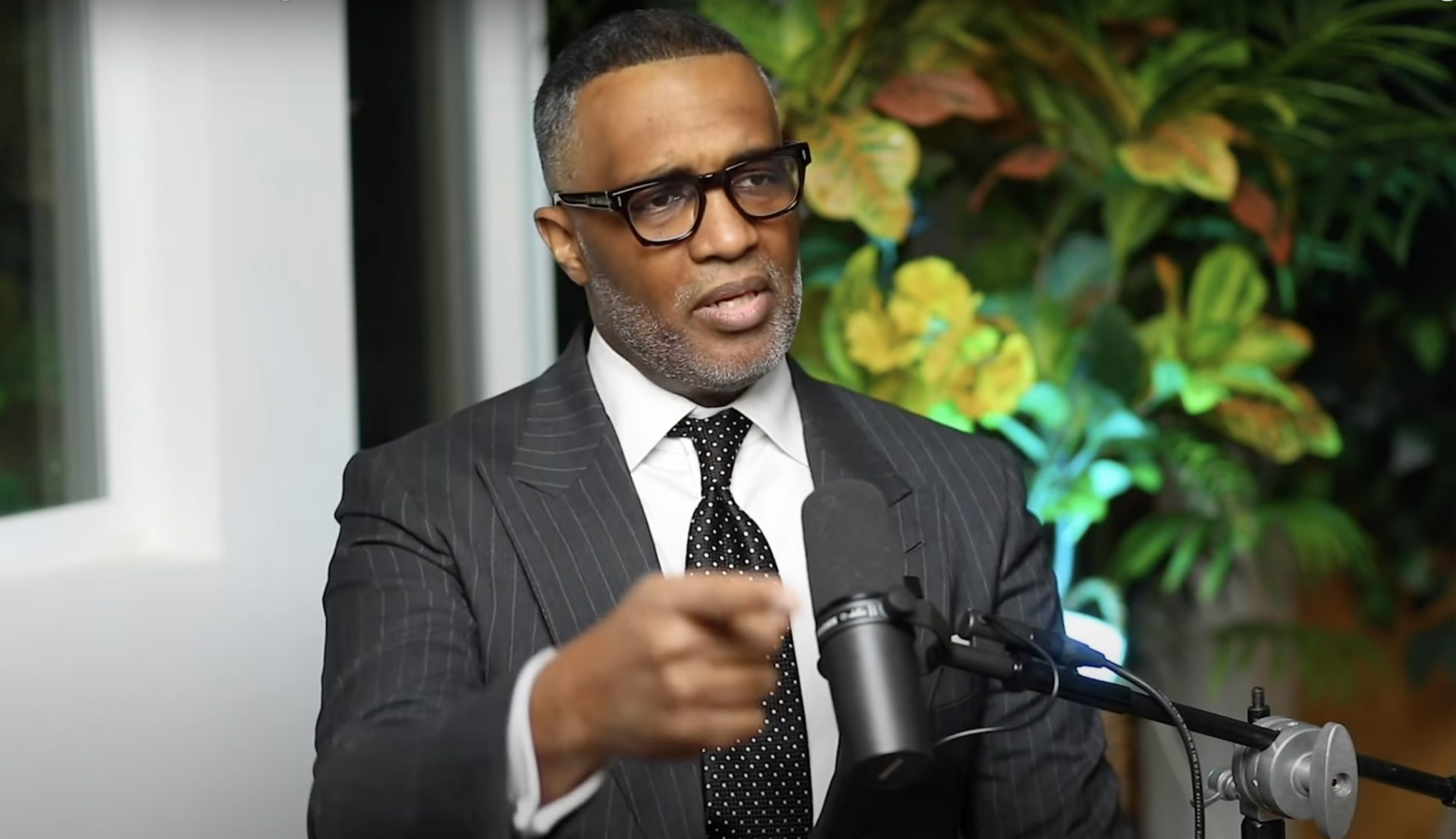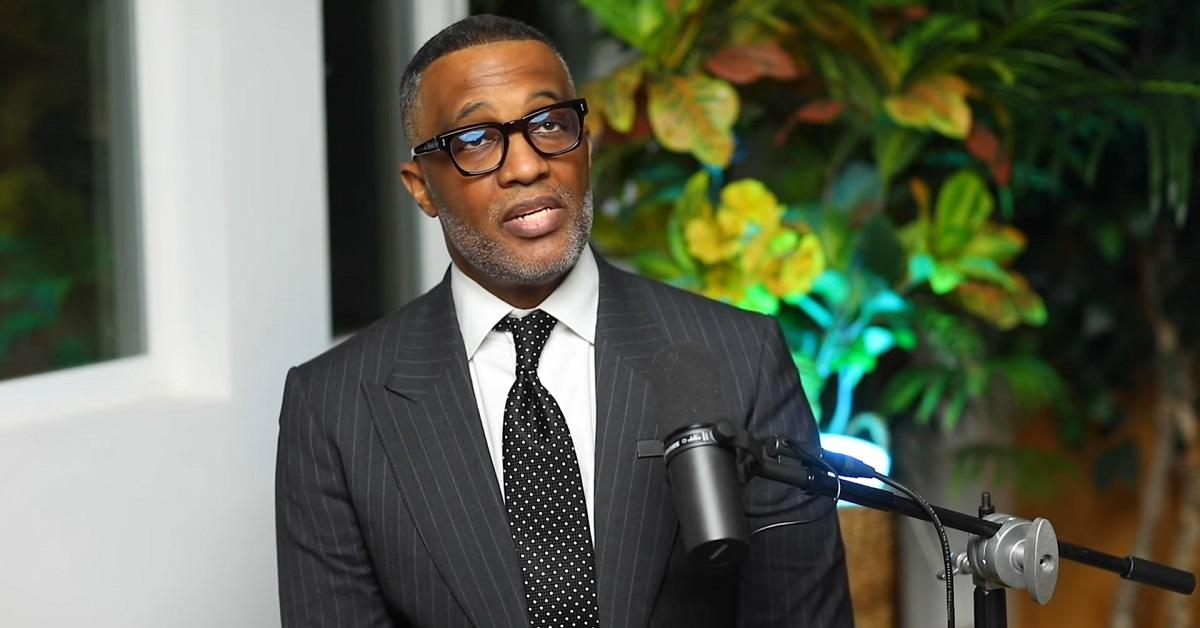What sparked significant public discussion surrounding a particular individual's actions or statements? A complex interplay of public perception, media coverage, and personal conduct often fuels such controversies.
A specific individual's conduct, statements, or actions, which became the subject of substantial public debate and scrutiny. This could involve allegations of misconduct, controversial opinions, or differing interpretations of events. Examples include public pronouncements viewed as offensive or damaging to reputation, allegations of unethical behavior, or significant discrepancies between public image and private conduct. Determining the validity of claims, evaluating evidence, and understanding the impact on various stakeholders are crucial components of analyzing such situations.
Such controversies, while often characterized by negativity, can nonetheless serve as catalysts for important societal conversations. They can raise awareness about critical issues, provoke reforms, and inspire introspection on social norms and ethical standards. The scrutiny surrounding these situations can also have significant, long-lasting impacts on individuals, organizations, and broader cultural narratives.
| Category | Details |
|---|---|
| Name | Kevin Samuels |
| Profession | Relationship Coach, Social Media Influencer |
| Known For | Providing relationship advice, often with controversial views. |
| Notable characteristics | Direct, outspoken, and often perceived as provocative. |
Moving forward, let's delve into the specific events and opinions that have fueled the controversy surrounding this individual, considering the wider context of societal discourse and the impact on various groups.
Kevin Samuels Controversy
The controversy surrounding Kevin Samuels highlights a complex interplay of public perception, media coverage, and personal conduct. Understanding its facets is crucial for analyzing such situations.
- Statements
- Public image
- Misconduct allegations
- Relationship advice
- Media scrutiny
- Social impact
Kevin Samuels' controversial statements, often perceived as misogynistic and harmful, contributed significantly to the public outcry. His curated public image contrasted sharply with the content of his advice, sparking accusations of misconduct. The criticism extended to his relationship advice, which some found problematic. Media scrutiny amplified the controversy, drawing attention to the social impact of such pronouncements. His words resonated across online platforms, influencing perceptions of relationships and gender roles. The overall controversy underscores the importance of critically examining public figures' messages and actions within a societal context.
1. Statements
Statements made by Kevin Samuels played a pivotal role in the controversy surrounding him. These pronouncements, often delivered through social media platforms and various public forums, became the focal point of criticism and debate. Analysis of these statements reveals diverse facets, each contributing to the overall negative perception and public outcry.
- Misogynistic and harmful rhetoric:
Many of Samuels' statements were characterized by misogynistic undertones and harmful portrayals of women and relationships. These remarks fueled accusations of sexism, contributing significantly to the controversy. Examples include statements advocating for specific types of behavior from women, or dismissing certain characteristics and values. The implications included perpetuation of damaging stereotypes, which alienated and hurt a large segment of the population.
- Controversial Relationship Advice:
Samuels' pronouncements on relationships frequently drew criticism for being overly simplistic, judgmental, or even harmful. His advice, often presented in a dogmatic manner, led to accusations of promoting unhealthy dynamics. Specific examples involved promoting power imbalances, or discouraging certain actions in a manner which others found unfair. The implications of this facet were that the advice was deemed ineffective and potentially harmful for individuals seeking to understand or improve relationships.
- Public vs. Private Conduct Discrepancies:
The perceived dissonance between the public image Samuels presented and the content of his pronouncements was a significant source of criticism. His statements frequently contradicted or minimized the effects of negative actions. Examples included his public discussions contrasting with personal actions, which fueled accusations of hypocrisy. The implications lay in the erosion of trust in Samuels as a credible source, and in a general shift in how his public words were perceived.
- Contextual Misunderstandings and Lack of Nuance:
Some of Samuels' statements lacked context, nuance, or an understanding of diverse perspectives. This created a sense of unfairness, leading to the perception of his pronouncements as overly broad, and lacking respect for individual circumstances. Examples of this might be advice given without detailed understanding of the relationship dynamics. The implications were that the absence of careful consideration led to a breakdown in meaningful discussion and furthered the controversies concerning harmful advice.
These various elements of Samuels' statements, taken collectively, served as primary drivers of the controversy. They illustrate the crucial role public discourse plays in shaping perceptions of individuals and relationships, emphasizing the need for caution and careful consideration in public communication and pronouncements.
2. Public Image
Public image, the perceived persona projected by an individual, played a significant role in the controversy surrounding Kevin Samuels. The image carefully constructed and disseminated online, often contrasting sharply with the content of his pronouncements, became a focal point of criticism. This dissonance fuelled accusations of hypocrisy and contributed significantly to the public outcry. The carefully curated image of expertise and authority, juxtaposed with the perceived misogyny and problematic advice, amplified the controversy.
The discrepancy between public image and actual conduct is a common theme in controversies. A public persona built on perceived authority or expertise, if later found to be at odds with actions or statements, can erode trust. The image acts as a foundation for public perception, influencing how statements are interpreted and impacting the overall narrative surrounding a figure. In the context of Samuels' controversy, the meticulously crafted public persona, emphasizing his role as a relationship expert, was challenged by accusations of promoting harmful and unethical advice, highlighting the vulnerability of reliance on a projected public image.
Understanding the connection between public image and controversy is crucial for several reasons. It underscores the power of public perception in shaping narratives and influencing opinions. Moreover, it emphasizes the importance of authenticity and congruence between personal conduct and projected image. The analysis highlights the need for scrutiny and critical evaluation of public figures, particularly in fields such as relationship advice, where the potential for harm is significant. Individuals and organizations should be mindful of the potential consequences of a misaligned public image, and the lasting impact on reputation and public trust.
3. Misconduct allegations
Allegations of misconduct played a significant role in the controversy surrounding Kevin Samuels. These accusations, often related to the content of his pronouncements and actions, brought scrutiny to his persona and public image. Understanding the nature of these allegations is crucial for a comprehensive analysis of the situation.
- Misogynistic and harmful statements:
Central to the misconduct allegations were accusations that Samuels' pronouncements promoted harmful stereotypes and contributed to a hostile environment. These statements, frequently focusing on gender roles and acceptable behaviors, were characterized as misogynistic and damaging to women's self-esteem and empowerment. Examples included specific assertions about female behavior and their supposed deficiencies. The implications of these pronouncements extended beyond individual interactions, contributing to a broader societal climate of gender inequality and discrimination.
- Exploitation of vulnerable individuals:
Allegations suggested Samuels capitalized on the vulnerabilities of individuals seeking guidance or support. Some accused him of exploiting the emotional and relational struggles of those he interacted with, potentially for his personal gain or gratification. Evidence supporting these claims included particular instances where his advice or comments were perceived as exacerbating existing difficulties. The implications of such exploitation were profound, leading to the erosion of trust in Samuels as a genuine advisor and impacting individuals vulnerable to online guidance.
- Promoting unhealthy relationships:
Criticisms highlighted that Samuels' advice often promoted power imbalances or unhealthy dynamics within relationships. Such pronouncements were deemed harmful as they potentially normalized or justified certain behaviors. Examples included his focus on control or dominance in interpersonal dynamics and dismissal of considerations for women's agency. The implications included the reinforcement of harmful power structures within relationships, with potential consequences for individual well-being and societal perceptions of healthy partnerships.
These misconduct allegations, viewed together, underscore the importance of critical examination of public figures. They demonstrate how words and actions can have far-reaching consequences, particularly when delivered through platforms that allow for widespread dissemination and impact. The case of Kevin Samuels emphasizes the need for accountability and ethical consideration in the online discourse and public pronouncements that shape societal perceptions and influence behavior.
4. Relationship Advice
Relationship advice, a ubiquitous aspect of human interaction, can assume various forms, from casual conversations to formal guidance. When delivered by a public figure, particularly one claiming expertise, the potential for influence and impact is substantial. Kevin Samuels' approach to relationship advice was a crucial component of the controversy surrounding him. His pronouncements, frequently characterized by a stark and uncompromising style, often emphasized specific behavioral expectations, often from women, as essential for successful relationships.
The controversy surrounding Samuels stemmed, in significant part, from the perceived negativity and potentially harmful nature of his advice. Numerous criticisms centered on the assertion that his perspective perpetuated harmful stereotypes and inequities within relationships. The emphasis on rigid gender roles, the dismissal of individual experiences, and the perceived lack of nuance in his advice contributed to the negative reception and widespread condemnation. Real-life examples illustrate this impact: individuals who attempted to apply Samuels' advice reported feelings of isolation, inadequacy, and pressure, highlighting the potentially detrimental consequences of such unqualified and potentially harmful advice. The critical aspect here is that relationship advice, when disseminated by public figures with a large platform, can have a tangible, albeit often unintended, consequence on the very people seeking their guidance.
The significance of understanding the connection between relationship advice and controversy lies in recognizing the potential for harm within public pronouncements. This understanding demands a critical approach to the advice offered by any public figure, especially those claiming expertise in complex social dynamics. The analysis underscores the necessity for ethical considerations and a commitment to fostering inclusivity and empathy in relationship advice. Furthermore, it highlights the broader societal need for a more nuanced and critical engagement with the advice and guidance that individuals receive, especially from figures wielding considerable influence.
5. Media Scrutiny
Media scrutiny played a pivotal role in the Kevin Samuels controversy. The widespread dissemination of his statements, predominantly through social media, created a fertile ground for intense public examination. News outlets, online forums, and social media platforms actively analyzed and debated the content of his pronouncements, often amplifying the controversy. The scrutiny, both positive and negative, further shaped public perception and the narrative surrounding Samuels. Real-life examples illustrate this dynamic. For instance, viral videos of Samuels' pronouncements, coupled with critical commentary from various sources, amplified the discussion and contributed to the escalation of negative reactions.
The importance of media scrutiny in this controversy lies in its ability to expose problematic viewpoints and potentially harmful rhetoric. This scrutiny is a cornerstone of democratic discourse, allowing diverse perspectives to be presented and debated. However, the manner in which media outlets handled the situation was also subject to scrutiny. The potential for biased or selective reporting, or the exacerbation of already tense public discourse, was a significant consideration. The speed and breadth of media coverage often outpaced careful fact-checking, amplifying certain claims or misinterpretations. This emphasizes the need for responsible reporting and media literacy in mitigating potential harm arising from public figures' statements.
In conclusion, media scrutiny, while a critical component of public discourse, necessitates responsible engagement and careful consideration. The Kevin Samuels controversy serves as a case study in the complex relationship between public figures, their statements, and the media's role in amplifying and shaping public perceptions. Analysis of this connection necessitates understanding the potential for both constructive and damaging outcomes. Ultimately, navigating such controversies requires balancing the need for public discourse with the imperative for accurate and unbiased reporting to avoid exacerbating existing social divides or perpetuating harmful stereotypes.
6. Social Impact
The Kevin Samuels controversy exemplifies a significant social impact. His pronouncements, often disseminated through online platforms, reached a wide audience, influencing societal perceptions of gender roles, relationships, and self-worth. The impact extends beyond individual interactions, shaping broader social discourse and potentially contributing to existing societal biases. For instance, his frequent emphasis on specific behaviors expected of women could reinforce traditional gender roles, potentially impacting self-esteem and creating a framework for discrimination in various contexts. Directly or indirectly, his comments likely affected individuals across diverse demographics who encountered them online.
The controversy highlights the power of online platforms to amplify and disseminate social narratives, for better or worse. Samuels' case demonstrates how a public figure's words can resonate across vast audiences, contributing to a culture where potentially harmful generalizations and stereotypes are amplified. Further analysis reveals that the perceived influence of figures like Samuels extends beyond explicit pronouncements, potentially impacting individuals through the subtle reinforcement of harmful social norms embedded within these commentaries. Such influential figures can contribute to a climate where certain behaviors are normalized, impacting social acceptance and exclusion in both online and offline environments.
Understanding the social impact of controversies like this is crucial for fostering critical media consumption, ethical online behavior, and promoting a more equitable society. The case of Kevin Samuels underscores the need to critically evaluate the messages we consume, especially those from public figures with large online followings. Furthermore, understanding the amplification potential of online platforms, combined with the inherent influence of public figures, is vital for mitigating the spread of potentially harmful ideologies. Society needs to develop more robust mechanisms for challenging harmful generalizations and stereotypes propagated online, fostering a more balanced and nuanced understanding of social dynamics. Individuals and institutions alike should promote media literacy, ethical communication, and critical thinking to navigate such controversies constructively.
Frequently Asked Questions
This section addresses common inquiries surrounding the controversy surrounding Kevin Samuels, offering a factual and informed perspective on the events and their implications.
Question 1: What were the primary criticisms leveled against Kevin Samuels?
Critics frequently highlighted Samuels' pronouncements on relationships, often perceived as misogynistic and promoting harmful stereotypes. Allegations included that his advice fostered power imbalances, dismissed individual experiences, and normalized behaviors deemed unethical or inappropriate within relationships. Further criticisms focused on the perceived dissonance between his public image as a relationship expert and the content of his pronouncements.
Question 2: How did media coverage contribute to the controversy?
Media coverage, particularly through social media and online platforms, played a significant role in amplifying and dissecting Samuels' statements. This extensive coverage, sometimes lacking in nuanced analysis, often led to an escalation of the controversy and the rapid dissemination of potentially biased interpretations of events.
Question 3: What was the social impact of Samuels' pronouncements?
Samuels' statements, disseminated widely online, resonated with segments of the public, potentially reinforcing harmful gender stereotypes or contributing to a climate of discrimination and judgment. The controversy highlighted the power of online discourse in shaping societal perceptions and the potential for public figures' words to influence attitudes and behaviors.
Question 4: How did Kevin Samuels' public image contribute to the controversy?
The carefully crafted public image of Samuels, often presenting himself as an authority on relationships, contrasted sharply with the content of his pronouncements. This perceived dissonance between the projected image and the actual advice or commentary led to widespread criticism and accusations of hypocrisy.
Question 5: What broader implications can be drawn from the controversy?
The controversy underscores the need for critical evaluation of public figures' pronouncements, particularly regarding sensitive topics such as relationships and gender roles. It also highlights the power of online platforms in disseminating information, shaping public discourse, and the potential for harmful impacts on individuals and societal perceptions.
The analysis presented here provides context for understanding the Kevin Samuels controversy, emphasizing the need for critical engagement with online information and public figures' statements. Moving forward, let's explore the broader implications of such controversies in the digital age.
Conclusion
The controversy surrounding Kevin Samuels highlights a complex interplay of public perception, media coverage, and personal conduct. Key aspects include the nature of his pronouncements, often viewed as misogynistic and promoting harmful stereotypes; allegations of misconduct, including the exploitation of vulnerable individuals; and the contrast between his carefully constructed public image and the substance of his relationship advice. Media scrutiny played a crucial role in amplifying the controversy, exposing the potential for widespread dissemination of problematic views. The social impact extended beyond individual interactions, influencing societal perceptions of gender roles and relationships, potentially contributing to the reinforcement of harmful stereotypes and behaviors. Ultimately, the case underscores the importance of critical evaluation of public figures' statements and actions, particularly in fields like relationship advice where the potential for harm is substantial.
Moving forward, the controversy serves as a reminder of the responsibility inherent in public discourse and the potential for online platforms to amplify both positive and negative messages. Critical engagement with information, particularly from public figures, necessitates careful consideration of context, nuance, and the potential for unintended consequences. A deeper understanding of the mechanisms through which harmful stereotypes and potentially problematic messages spread online is essential to mitigate such effects and foster a more balanced and ethical online environment. The imperative is to encourage critical thinking, promote media literacy, and cultivate a culture of responsible communication within the digital sphere.


